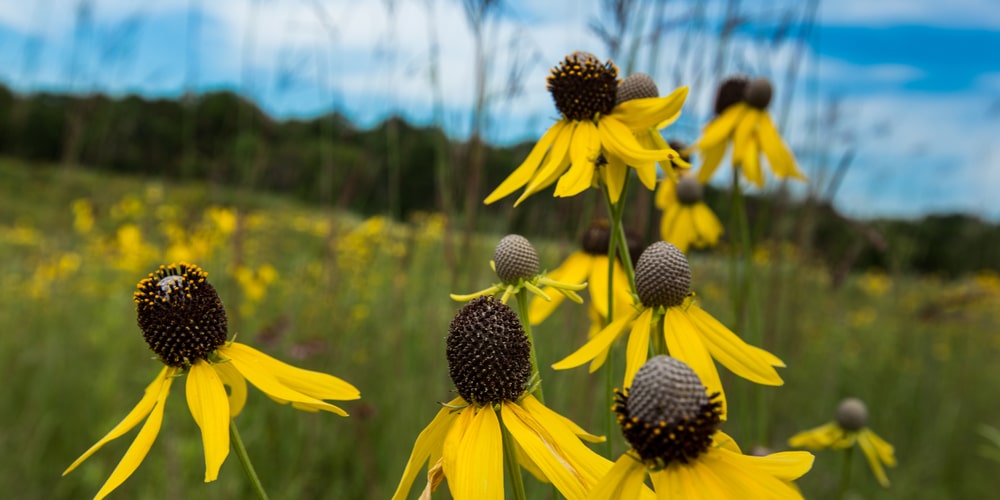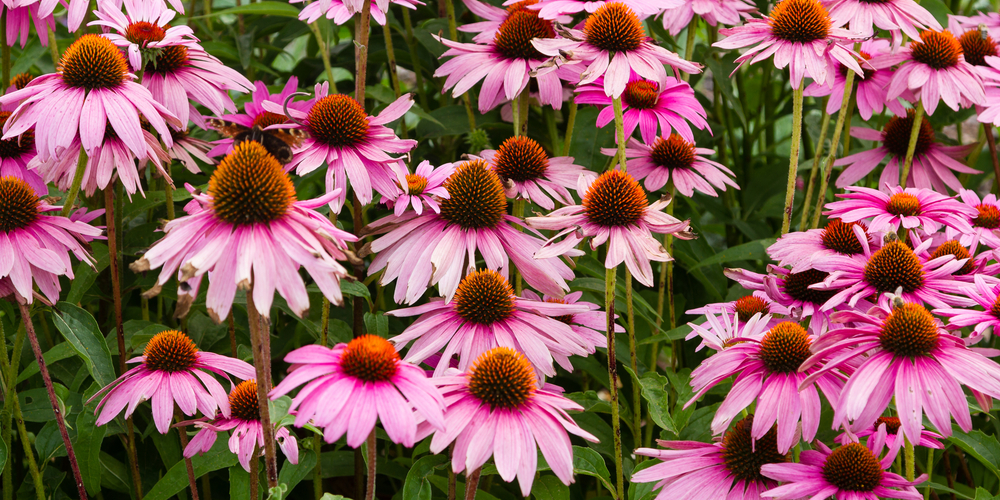If you are looking to add wonderment and bring beneficial insects to your garden, you may consider growing coneflowers. Native to central and eastern USA, coneflowers are flowering herbaceous perennials that bloom into daisy-like flowers with prickly centers. They are generally hardy and have a long blooming period. You may be wondering which Coneflower fertilizer is available.
However, to keep your coneflowers thriving, lush, and blooming all season long, you need to feed them as needed, ideally in the early spring before new growth begins. These beloved perennials grow best in soil high in organic matter but will take supplemental fertilizer.
If you are a beginner gardener looking for the best types of fertilizer for coneflowers, this post will cover types of coneflower fertilizer and the best fertilizing practices. Read on to know how to give your coneflowers the nutrition they need for healthy foliage and blooms.
Best fertilizer types for coneflower
First off, native coneflowers seldom require fertilizer. They thrive in soil rich in organic matter and will provide you with endless summer blooms without fertilizer.
However, depending on the nutritional profile of your garden soil, you may need to fertilize your coneflowers to ensure vigorous growth and abundant blooms.
Fertilizing your coneflowers makes them healthier and more resistant to pests and diseases. That said, the best type of fertilizer for your coneflowers will depend on the composition of your soil. Before applying fertilizer, you need to test your soil first and determine what essential nutrients are lacking. This will lead you to pick the right coneflower fertilizer.
Here are some recommendations when it comes to fertilizing coneflowers:
- Compost is the best coneflower fertilizer. It is simple and, interestingly, you can make it in your own backyard. You can also purchase a bag of compost at your local nursery. If you can’t find compost (in rare cases), well-rotted manure will do the trick.
- Balanced, organic fertilizer: Coneflowers are not heavy feeders and will appreciate a fertilizer with active microbes. A well-balanced, organic all-purpose fertilizer will provide your coneflowers with the nutrients they need to grow healthy and bloom all season long.
It is not recommended to use synthetic (inorganic) fertilizers when it comes to fertilizing coneflowers and other native perennials. Synthetic fertilizers tend to kill beneficial microorganisms and bleach into the water, increasing its toxicity. They also disrupt your garden soil’s healthy balance.
Fertilizing best practices
Too much supplemental fertilizer can cause coneflowers to become leggy. On the other hand, compost or well-rotted manure gives your flowers the nutrients they need for healthy foliage and blooms.
When it comes to applying fertilizer or top-dressing coneflowers, it is best to fertilize in early spring, just as new growth is starting to arrive. Of significance, you will need to feed your coneflowers every spring.
Whether you are planting starts or improving the nutrient profile of your coneflowers garden, a 2-inch layer of compost or aged manure will give your plants the nutrients they need. With compost, you only need to feed your flowers once a year.
On the other hand, if you are using a store-bought all-purpose fertilizer, follow the manufacturer’s instructions. Before using any commercial fertilizer on your coneflowers, ask your local county extension agency to test your soil and recommend the best product.
After applying fertilizer, you may want to water and apply a layer of organic mulch. Watering provides the moisture needed to boost nutrient absorption, while mulching preserves soil moisture. Organic mulch will also decompose, raising the soil’s nutrient profile.
There are many varieties of coneflowers, each with unique soil nutrition, moisture, and pH requirements. Having your soil tested will help ensure you provide the coneflower species you are planting with the best growing conditions.
When fertilizing coneflowers, especially using store-bought fertilizers, it is crucial to avoid over-fertilizing. Over-fertilizing can make your coneflower plants leggy and, in extreme cases, damage your garden soil and cause fertilizer burn.
Conclusion
Coneflowers are native flowering herbs. While they don’t necessarily need fertilizer to thrive and grow happily and bloom when planted in organic-rich soils, they can benefit from balanced fertilizer.
Your coneflowers will appreciate being top-dressed with compost or fed with an organic fertilizer in early spring. If you are contemplating the idea of fertilizing coneflowers, hopefully, you will find this post useful and helpful.

